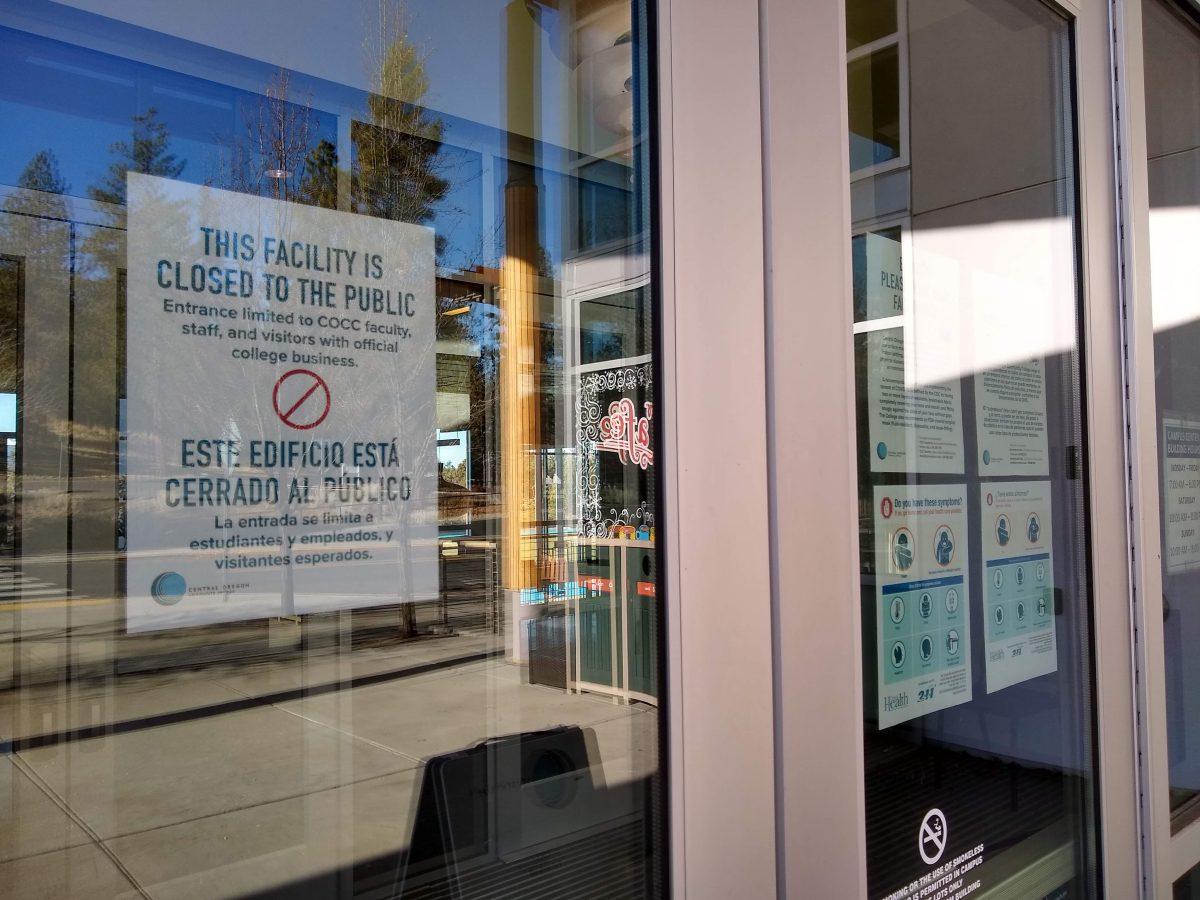Fredrik Finney-Jordet/The Broadside
Eight recently reported cases of COVID-19 at COCC are unrelated, according to the college’s public relations department. The college president also commented on new cases in a recent email to staff.
As of Tuesday, the college’s COVID-19 Data Dashboard shows eight total cases of the virus, with three people being reported in the last two weeks, seven people being students, and one person being staff.
This comes as the week of Nov. 16 was recently found by the Oregon Health Authority to have been the worst week for COVID-19 cases in Oregon since the beginning of the pandemic, with 8,687 new cases and 61 deaths.
On Nov. 17, college President Laurie Chesley sent out an email to a portion of staff-members commenting on the positive COVID-19 cases. According to the email, the recently reported cases are likely a result of community spread than of spread through the college or college-related events.
“While our College reopening protocols are absolutely working to keep our campuses healthy and safe, it was likely we would see positive cases among faculty, staff and students as regional cases increase and community spread occurs,” Chesley said.
Jenn Kovitz is the director of marketing and public relations at COCC and is responsible for updating the COVID-19 Data Dashboard. In an interview when there were only five cases, Kovitz said that, “none of these five student cases since Sept. 21 are related/epidemiologically linked.” Since then, Kovitz confirmed that the three new cases were also not related or epidemiologically linked.
As for who makes that designation, Kovitz said, “[the] local county public health authorities determine whether cases are epidemiologically linked.” Due to the need for privacy, there is no accessible information about how the eight people contracted the virus.
Other than Chesley’s email to a portion of staff members, and contract tracing related to the individuals who contracted the virus, there have been no apparent communications by the college to inform students or the community at large about the current COVID-19 cases. The COVID-19 Latest Updates webpage on the college’s website was last updated on Oct. 23.
According to Chesley’s email to staff, the college has prepared measures to alert the community should an outbreak occur.
The Oregon Health Authority classifies an outbreak as five or more epidemiologically linked cases.
“If there is an outbreak, COCC will work with local public health authorities to promptly and transparently alert our internal and external communities,” Chelsey said.
According to Kovitz, one can read about the college’s steps to ensure the virus doesn’t spread further in the college’s reopening plans on its COVID-19 Information web page. These plans include, but are not limited to, cleaning and disinfecting buildings, requiring the use of masks in all campuses while indoors and when social distancing isn’t maintained and working with county public health authorities to, “ensure they are able to effectively respond to and control outbreaks through sharing of information when appropriate.”
Chesley mentioned that as part of the reopening plan, additional safety measures might be put in place after positive cases are reported, such as moving an in-person class to remote-learning for two weeks. “The college has already, in four separate instances, moved a class to remote-only for 14 days out of an abundance of caution after a positive student case,” said Kovitz. “Any facility in which an in-person class took place was given an extensive additional cleaning and sanitization.”
None of the classes that have moved to remote-only has been reported as having subsequent cases of COVID-19.
In her email to staff, Chesley remarked that, “employees and students are doing an exceptional job following health and safety guidelines.”
She also wrote that while the news of positive COVID-19 cases can be frightening, she would like all staff to remain calm, “I encourage us all to remain calm and follow the latest state recommendations on how to avoid contracting—and spreading—the coronavirus.”
Those state recommendations can be found on the Oregon Health Authority’s COVID-19 webpage.
Editor’s note: This article has been edited for clarification as of 12/7/2020. The original version neglected to mention that the college has performed contract tracing, thereby communicating with the community about the recent cases. The Broadside regrets the error.








